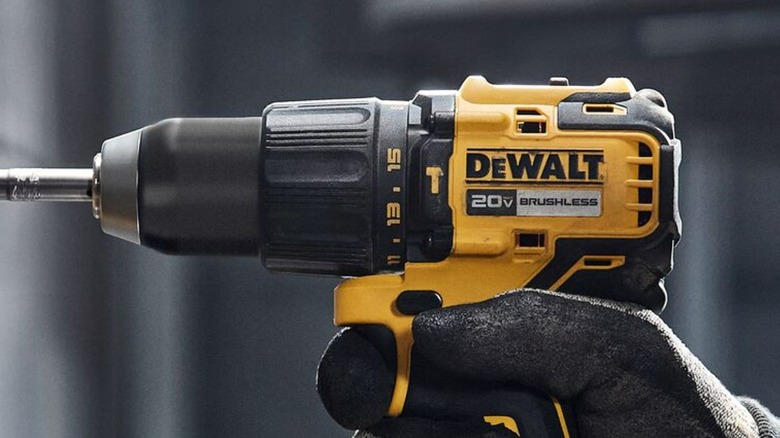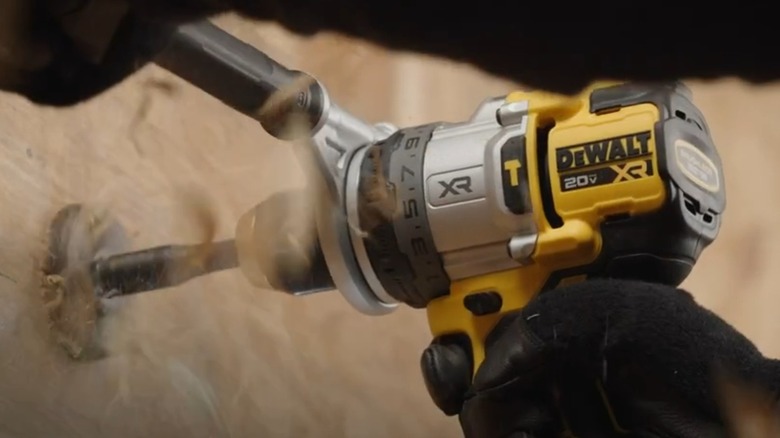Can You Use A DeWalt Hammer Drill As A Regular Drill?
In the modern era, there are lots of options to choose from if you're in the market for a new drill. Look no further than the major cordless drill brands that are all seeking to earn your business. Among these is the selection from DeWalt, with some of the best cordless drills you can buy. There are several types under DeWalt's belt, including standard, stud, and joist drills among others. Some can even pull double duty, saving you time and money in the long run.
For example, if you only have a hammer drill at your disposal you could use it for standard drill purposes. The DeWalt 20V Max Cordless Hammer Drill has three different speed options. Pressing the trigger adjusts the speed and torque level. As a result, it doesn't have to exert the same level of power as traditional hammer drills for tasks such as drilling into stone and concrete. On a lower setting, its performance becomes closer to a standard drill, making it capable of puncturing softer materials like wood and plastic without causing any damage to them. At the same time, there are exceptions to this. There are some situations where a hammer drill, DeWalt or otherwise, should not be used as a replacement for a regular drill.
Situations where a DeWalt hammer drill isn't ideal
While some DeWalt hammer drills offer speed options for lighter applications, others are specifically designed for heavy-duty jobs. To use them for regular drill-intended tasks wouldn't be the best idea. Even if used carefully, their additional power and torque could break the material as well as the fastener being inserted or removed. This is a given if you're drilling into fragile material like glass or tile that is easily prone to breakage.
Additionally, in a situation where drilling has to be precise, a hammer drill could be overkill if you're not prepared for its power. As the name implies, this type of drill utilizes not only rotational force but also a hard back-and-forth motion — though it's worth noting that hammer drills are notably different from rotary hammers. The point is, the nature of their functionality can make them hard to handle and you could end up drilling in the wrong spot or too deep.
At the end of the day, a DeWalt hammer drill can theoretically get you through if you don't have a regular drill on hand. However, if the material isn't right or the tool itself seems like too much for the task, waiting until you have a standard drill in your toolbox is for the best.

